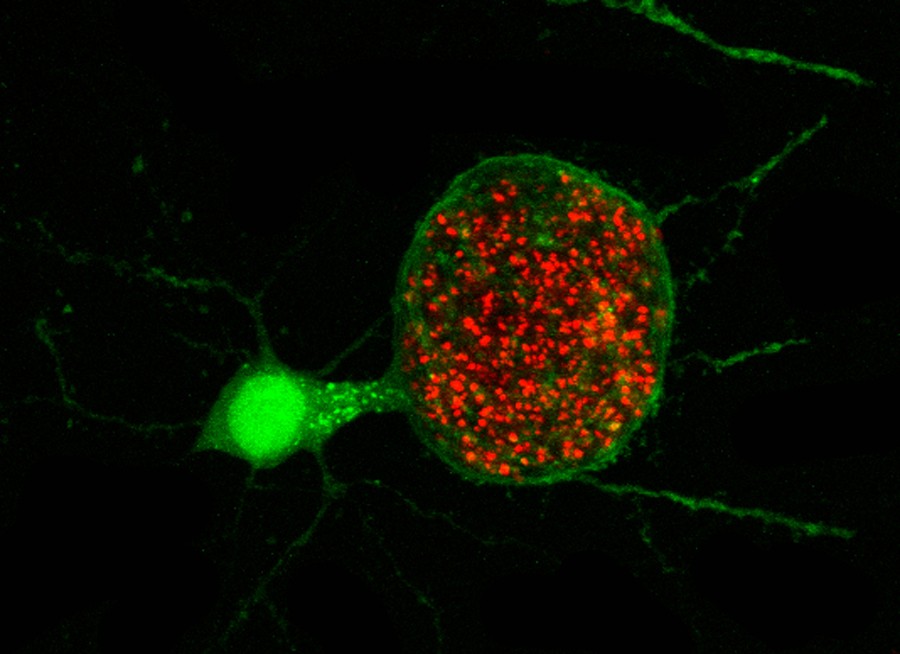Toxoplasma gondii is one of the world’s most prolific parasites. Although it has been theorized that between 30 and 50 percent of the world’s population may carry the protozoa, many carriers of T. gondii display no apparent symptoms of the subsequently caused disease, toxoplasmosis. They remain unaware that their bodies are permanent homes for an unwanted guest.
Transmitted through undercooked meats, cat feces and even congenitally—from mother to unborn child—the parasite is a master at dispersing itself between hosts. Capable of multiplying like a biblical plague, the disease is usually benign, but can potentially be harmful to people with weak immune systems such as infants and AIDS patients.
Depending on the health of its host, T. gondii’s pathological effects range from fevers to seizures and inflammation of the brain.
There is no cure for toxoplasmosis, but scientists around the world are working to decode the mysteries of the parasite behind the disease. Among these investigators is Dr. Anita Koshy, an assistant professor of neurology at the UA.
“Toxoplasma is able to change the [central nervous system] immune response so that it doesn’t get cleared,” Koshy said.
Much like a security guard, the immune response’s job is to keep any harmful organisms in check and prevent them from doing any serious damage.
While the thought of a parasite disarming the body’s natural defenses seems scary, this may be a fragment of the bigger picture. In reality, it may be more harmful for a host organism to generate an immune response to T. gondii than to simply allow the parasite to continue living in the host’s body.
“It’s better to tolerate that parasite than to create this massive immune response that destroys a good portion of the CNS,” Koshy said.
The nervous system and the parasite have coevolved with each other, shifting the paradigm of toxoplasma from rude guest to a visitor that may potentially pay rent and even wash the dishes once in a while, according to Koshy.
Coevolution occurs when two species affect each other’s evolutionary patterns. A prime example of this is the relationship between bees and flowers. Bees evolved structures to carry pollen from flower to flower, and flowers developed structures that enable bees to pollinate them and collect nectar more easily.
While the relationship described in the example is straightforward and mutually beneficial, the relationship between the CNS and toxoplasma is less reciprocal and much more complex.
One of the most fascinating aspects of toxoplasma is its unique relationship with Alzheimer’s disease.
Koshy’s research is an expansion from the result of a previous experiment conducted in 2012. In the previous experiment, mice that expressed both toxoplasma and Alzheimer’s disease showed reduced symptoms of Alzheimer’s compared to mice that expressed Alzheimer’s without toxoplasma.
“That gives credence to the idea that toxoplasma is changing something that then protects against these second CNS insults,” Koshy said.
In other words, toxoplasma may actually provide health benefits for Alzheimer’s patients, despite its ability to cause diseases.
While subjecting Alzheimer’s patients to the toxoplasma parasite may seem like a reasonable way to treat the disease, there is still much to learn about the curious connections between the “brain insults” caused by Alzheimer’s disease and the parasite.
Although the presence of the toxoplasma is linked to a decrease in Alzheimer’s effects, the mechanism causing the two factors to be related remains unknown.
Follow Stephan Dong on Twitter.









